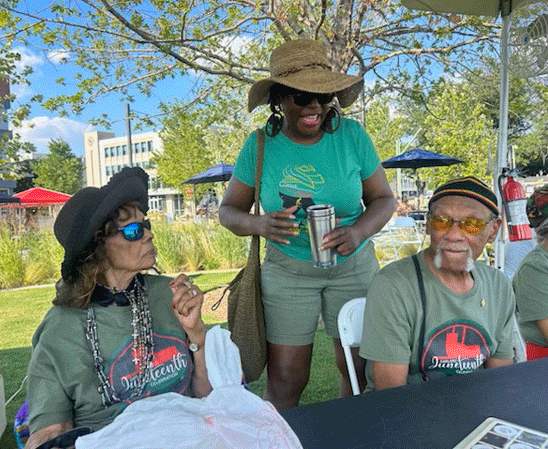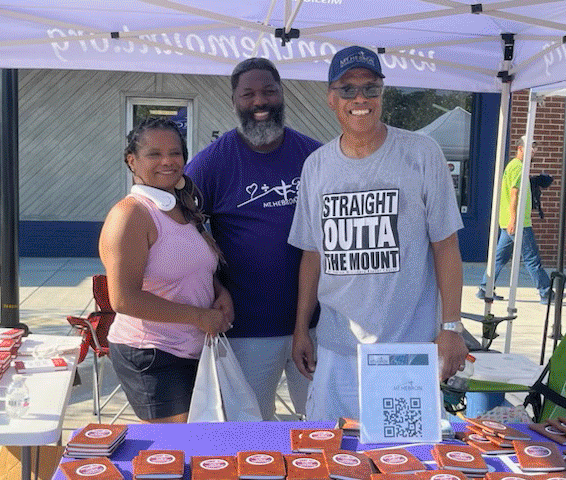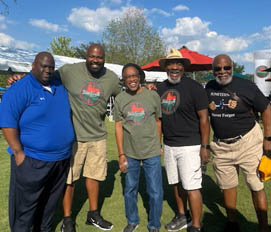Despite the heat, everyone had a great time at Garland’s Saturday, June 15 Juneteenth celebration. There were activities for everyone including great food, free Kona Ice treats and a children’s activity area with bounce houses and games.
Organizations including several area churches, Garland’s library system and Heritage Crossing were also on-hand to

Photos by Demi Ogbulu
celebrate. Heritage Crossing exhibited informational panels honoring some of Garland’s influential African Americans.
Wanda King, blues singer and daughter of blues legend Freddie King, entertained the crowd.
Annie Dickson told a city representative that it blesses her heart that not only African Americans are celebrating. All ethnicities are together celebrating with them.
“That means a lot because they recognize the struggle and success…When you look back on how we started, who would have thought that someone like me, coming from Shreveport, Louisiana, would run for [City] Council and win twice and run for mayor and lose by 47 votes.”
Mayor Scott LeMay was happy to acknowledge that although this is the third annual Juneteenth celebration, it will be the first year that it will be recognized as a city holiday. Because of this, city employees will have an opportunity to celebrate and reflect.
About: Juneteenth marks the day when federal troops arrived in Galveston, Texas in 1865 to take control of the state and ensure that all enslaved people be freed. The troops’ arrival came a full two and a half years after the signing of  the Emancipation Proclamation. Juneteenth honors the end to slavery in the United States and is considered the longest-running African American holiday. On June 17, 2021, it officially became a federal holiday.
the Emancipation Proclamation. Juneteenth honors the end to slavery in the United States and is considered the longest-running African American holiday. On June 17, 2021, it officially became a federal holiday.
Confederate General Robert E. Lee had surrendered at Appomattox Court House two months earlier in Virginia, but slavery had remained relatively unaffected in Texas—until U.S. General Gordon Granger stood on Texas soil and read General Orders No. 3: “The people of Texas are informed that, in accordance with a proclamation from the Executive of the United States, all slaves are free.”
The Emancipation Proclamation
The Emancipation Proclamation issued by President Abraham Lincoln on January 1, 1863, had established that all enslaved people in Confederate states in rebellion against the Union “shall be then, thenceforward, and forever free.”
In reality, the Emancipation Proclamation didn’t instantly free any enslaved people. The proclamation only applied to places under Confederate control and not to slave-holding border states or rebel areas already under Union control. However, as Northern troops advanced into the Confederate South, many enslaved people fled behind Union lines.
Juneteenth and Slavery in Texas
In Texas, slavery had continued as the state experienced no large-scale fighting or significant presence of Union troops. Many enslavers from outside the Lone Star State had moved there, as they viewed it as a safe haven for slavery. Source: http://www.history.com/news/what-is-juneteenth


